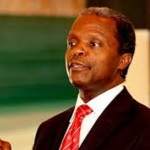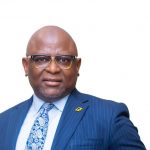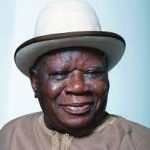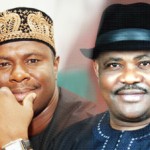The Trinity of Dipo Fashina: The Intellectual, Humanist and Revolutionary
Featured Contributors/Columnists, Latest Headlines Monday, January 23rd, 2017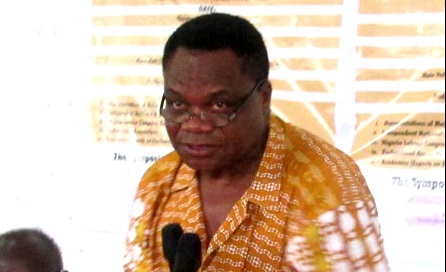
By Owei Lakemfa
I took no Philosophy course in my undergraduate days in the University of Ife – now Obafemi Awolowo University (OAU ) – but I got to know Dr. Oladipo Fashina quite well. My introduction to him 38 years ago, was indirect. One day, I ran into two of my course mates in the Drama Department. They were in a hurry for a class. “We have Jingo” they announced. I wondered what course was called ‘Jingo.’ I was to discover that Jingo, was the affectionate nickname students called Fashina; so all the courses he took from 100 to 400 Level were called ‘Jingo.’
He was so accessible, simple and open, that to many students, he was the familiar elder brother or uncle. He was a lecturer with no airs whom you could stop anywhere and he would be ready to listen with compassion and even explain issues. Fashina speaks softly, logically, simply and so convincingly, that even if you do not accept his worldview, it is difficult to disagree with the workaholic who some students vowed could be found any time in his office. Students who missed him in his office, sometimes headed for the Sports Centre where he could be found playing beautiful football with students. He is ever willing to defend the weak especially victimized students.
Fashina is a rounded human being and an inspiration to generations of Ife students. He is also, an identity. One day in 1990, I got into conversation with a rising journalist who has now become a top politician. She bet I didn’t know her, so I mentioned her name and the medium she worked. She seemed disappointed I didn’t know her earlier than her journalism profession. I drew a blank: “I was Jingo’s student!” she said with pride. Needless to say, we worked closer as journalists as we belonged to the Jingo ‘fraternity’
Fashina is from the Ashogbon family of Isale Eko, the part of Lagos that produces its kings. He attended St. Peter’s Faji School, Ajele, Lagos. At 12, Fashina was admitted into the prestigious Kings College, Lagos and in 1963, proceeded to the Government College, Apata, Ibadan for his Higher School Certificate (HSC) He gained admission into the University of Ibadan to read French on Western Nigeria scholarship, but opted to study in the then Union of Soviet Socialist Republics (USSR)
Fashina, a polyglot, speaks Yoruba, English, French, Russian, Ukrainian, reads and translates German and Spanish.
He moved to the University of California, Los Angeles (UCLA) United States, where he got his Doctorate in Philosophy. He had gotten to the same Philosophy Department in UCLA in 1971, the year after the famous Angela Davis had been forced out for being a communist. Fashina joined the Movement and worked with the Black Panthers led by Bobby Seale, Huey. P. Newton and Eldridge Cleaver. It was his involvement in the Black Movement that radicalized him. For his doctoral thesis, he disproved the hypothesis that Karl Marx had only a theory on functions and change in social systems, but not on individuals. The title was “A Theory of Individuals in Karl Marx” He got his Ph.D. in 1979; that was at the height of Afro-American nationalism with a strong “Back-to-Africa” theme; so he decided to return to Nigeria immediately and join the movement for the emancipation of the country. That was how he came Ife.
Fashina used the Socratic methodology of teaching; leading the student to discover his or her faculties and applying this critical thought process to all he is taught, and does. He frequently uses the fictional Jingo as an example because he does not want to be accused of maligning anybody. But if he had to use more examples, he merely invented other names like Bongo, Bamanga, Bambara. Jingo has stuck on him and he willingly accepts this. To him, his students are his life.
Fashina was the founding Coordinator of the Philosophy Department of the Ogun State University (now Olabisi Onabanjo University) where he directed that his honorarium be used to establish the Departmental Library.
Despite his prodigious learning, academic output and producing professors like Femi Taiwo, Akinyemi Onigbinde and Yinusa Salami , Fashina is not a professor; when some new universities were established and they offered him professorship, he declined. He simply does not think professorship is crucial to his goal of producing good citizens and good scholars, and using his talents and knowledge to midwife a just society.
It was inevitable that his activism would come to the attention of the authorities; in 1986 he was detained by the Babangida regime.
In later years, he was elected National President of the Academic Staff Union of Universities (ASUU) during which he led one of the longest strikes by academics in Nigerian history; it rolled on for some eight months.
The very quiet Fashina once had an altercation with President Olusegun Obasanjo in the Presidential Villa and the latter walked out.
In order to strengthen the Labour Movement, Pro-Labour Civil Societies and organizations in 2003, established the Joint Action Front (JAF) Since 2006, there has been virtually no major mass struggle in the country the Fashina-led JAF had either not engineered or been a major part. These include the Minimum Wage struggles of 2010/2011, Anti-Fuel Price Increase protests of 2007, 2012 and 2016, the Primary and Post-Primary teachers battle for the implementation of the Teachers Salary Scale (TSS) the fight against privatization, campaign for credible elections in the country and the protests that sacked House of Representatives Speaker, Patricia Etteh for corruption. They also include the protests against arbitrary increase in school fees and the street protests of taxi drivers and commercial motorcycle (OKADA) riders for which Fashina and other JAF leaders were detained by the police in December 2012.
When I was the Acting General Secretary of the Nigeria Labour Congress during the nine-day nationwide fuel protests in January 2012, we entered into difficult negotiations with the government and reached the conclusion that we needed to strengthen the Labour team. We turned to the Lagos-based JAF to release Fashina to join us in Abuja. It took some persuasion because he was a central figure in the mobilization of millions of Lagosians who had taken over the country’s commercial capital during the protests.
Fashina thinks the formation of a Workers Party is possible despite the betrayals and opportunism in the Trade Union Movement. He draws inspiration from the life and struggles of outstanding Nigerians like Michael Imoudu, Mokwugo Okoye and Wahab Goodluck who was his uncle.
As he turns 70 today, January 23, 2017, I pay homage to the great Dr. Dipo Fashina, one of the most selfless, committed, principled and intellectually-endowed Nigerians in contemporary history.
Related Posts
Short URL: https://www.africanexaminer.com/?p=37684




